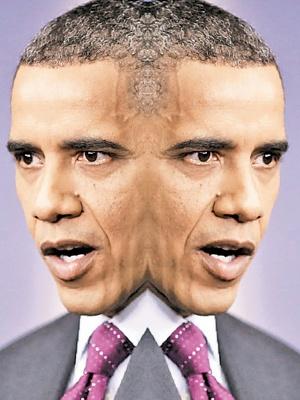
Less than a week ago, the image projected to the world of the U.S. president was indecisive, dubious and weak. Barack Obama changed his position with respect to the conflict in Syria at least three times. First, he said that he was ready to attack, after that he decided to ask Congress for support and last he opted for a diplomatic solution, signing a pact along with Russia to destroy Syria’s chemical weapons.
This week a very distinct Obama emerged. This one characterized by his determination and consistency. In front of Republicans, who are refusing to approve a temporary budget if the White House will not accept a plan to postpone the implementation of health reforms, Obama held fast and more or less stated that his health plan was nonnegotiable and that he would not permit further extortion. Although the Republicans threatened not to approve the funds necessary to keep the government open and running, Obama did not cave. The government closed its doors and now the fear exists that if the Republicans don’t change their opinion, Europe could fall into default as well. If Republicans continue to block a resolution in Congress to raise the debt ceiling, the repercussions will be disastrous for the U.S. and world economies.
So, will Obama cave as he did in Syria and in many other situations? The battle today in the U.S. is ideological and history is at stake. The so-called “Obamacare” is the most important achievement of his presidential term. Obama is convinced that the state should do more to protect the vulnerable. His health plan is destined to give health care coverage to more than 45 million Americans who don’t have it.
Foremost standing in the way is the tea party, which is more conservative than the Republican Party in Congress. Members believe that the state should not interfere in the economy or in the lives of its citizens. The tea party was born and gained supporters in the fight against Obamacare. They represent a part of the electorate that always distrusts the states, and last week they imposed their views on the more moderate part of the Republican Party. The Speaker of the House of Representatives John Boehner adopted the tea party’s positions. Meanwhile, Obama decided to not make any concessions and continued to insist that there will be no funds to reopen the government if Republicans don’t agree to partially or totally implement the health reform.
The question now is if Obama will achieve better results using his determination than the results related to Syria. While the two issues are totally different, there is no doubt that through his indecision — which his followers describe as pragmatism — Obama managed to take the Syrian issue to the U.N. with the support of Russia.
How will this new situation end? The Republicans say that if the president is capable of talking with his Iranian colleague Hassan Rouhani, then he should also be capable of talking to them. Yesterday, Obama summoned House Republicans to the White House, but at the end of the meeting, Boehner said that Obama was not willing to negotiate. The Democratic leaders, Nancy Pelosi in the House of Representatives and Harry Reid in the Senate, said that the Republicans are the ones who are unwilling to negotiate. But if no one changes their positions, then the U.S. is headed for default.

Leave a Reply
You must be logged in to post a comment.